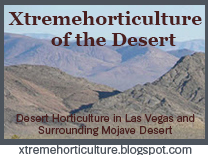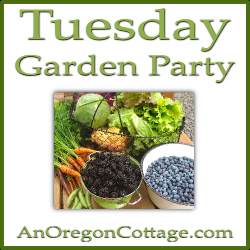Organic, non-hybrid, heirloom, GMO, open-pollinated… do you know the “real” meaning behind these words and other terminology commonly used by seed companies to describe their seeds? Read on to debunk these terms and become an educated consumer.
What made me decide to tackle this subject? Well it started on Sunday, when hubby and I were visiting my brother and sister-in-law, and an important topic was brought up over dinner. The subject: collecting and using seed from a previous seasons’ crop. As our brief discussion progressed, I realized I had gaps in my understanding of which veggie seeds could be collected at the end of a growing season and could then be planted the next planting season without issue. And why? I felt I had a good grasp of this subject until I was pressed to respond to a few questions. The conversation definitely sparked my interest in a big way and I was determined to remedy my knowledge gaps. With a new mission in hand, I began a two-day intensive research and reading marathon. Extreme? Maybe. I’m sort of anal that way and everyone gets to benefit 🙂 I just wish I was this way with my art 😦
In my search for some answers, I came upon several different ways seed companies describe (or define) their seeds. Though I’ve seen these terms a hundred times before, as you probably have too, it left me with a lingering question, “How well do I know what these terms REALLY mean?” So naturally, my quest expanded and the timing is perfect to become a more informed consumer. Hubby and I decided that we would setup a temporary raised bed just outside the back door to grow some veggies during the winter and spring growing season and I need to purchase some seeds. How cool is that! I don’t have to wait until the pool demo is complete to start growing veggies.
During my research, I came across the following terms and acronyms:
- Organic
- Certified Organic
- CCOF
- Open-Pollinated (OP)
- Heirloom
- Heritage
- Hybrid (or Non-Hybrid)
- Ecologically Grown
- Chemically Untreated
- Patented (PVP) (or Non-Patented)
- GMO (Genetically Modified Organisms) or GM (Genetically Modified)
- Genetically Engineered
- Genetically Altered
- Safe Seed Pledge
- CRG Pledge
Organic vs. Certified Organic
Most people these days are familiar with the term organic and are aware of the many positive health benefits consuming organic foods have. Since its introduction to the food and agricultural markets, the term “Organic” has been often abused and can be very misleading to uninformed consumers. In my research, I encountered many different definitions for the word “Organic”, so I went to the source. The folks who create and enforce standards in the usage of the term “Organic”… the USDA.
Just using the word, “Organic” on a product’s packaging in no way ensures the product is organic. For a product to be organic, a company must follow USDA / National Organic Program (NOP) standards to be able to legally sell, label and represent their product(s) as organic.
According to the USDA, to use the term Organic (and the USDA Organic seal), a product must consist of at least 95% organically produced ingredients (excluding water and salt). Use of the term Certified Organic pertains to individuals or companies who have been approved through a rigorous certification process with the National Organic Program (NOP) and its accredited certifying agents and who continuously comply with NOP regulations.
What is the National Organic Program (NOP)? NOP is the USDA program that regulates organic standards for farms, wild crop harvesting, or handling operations that want to sell an agricultural product as organically produced.
NOP regulations – check it out
National Organic Program (NOP) definition of the word “Organic”
“Organic is a labeling term that indicates that the food or other agricultural product has been produced through approved methods that integrate cultural, biological, and mechanical practices that foster cycling of resources, promote ecological balance, and conserve biodiversity. Synthetic fertilizers, sewage sludge, irradiation, and genetic engineering may not be used.”
NOP also states that “the organic standards describe the specific requirements that must be verified by a USDA-accredited certifying agent before products can be labeled USDA organic. Overall, organic operations must demonstrate that they are protecting natural resources, conserving biodiversity, and using only approved substances.”
Read more at: http://www.ams.usda.gov/AMSv1.0/nop
In addition to the information above, I thought you might be interested in what the USDA labeling requirements are (these are based on the percentage of organic ingredients in a product). I summarized information I found on the USDA’s Organic Labeling and Marketing information sheet.
Products labeled “100 percent organic” or “organic” (which must be at least 95% organic ingredients) must meet the USDA requirements for these designations and may display these terms and the percentage or organic content on their main product label. The USDA seal and the seal or mark of involved certifying agents may appear on product packages and in advertisements.
Products that contain at least 70 percent organic ingredients can use the phrase “made with organic ingredients” and the percentage of organic content and the certifying agent seal on their main product label. However, the USDA seal cannot be used anywhere on the package.
I encourage you to go to the USDA website. They have tons of information and definitely more complete info than I have provided here.
Other Terms
Though use of the term Organic is regulated and has standards in place, other labeling terms that currently have no restrictions on its use include “no drugs or growth hormones used”, “free range”, and “sustainably harvested”.
—————————————————————————————————————-
CCOF (California Certified Organic Farmers)
During my research, I stumbled across the term CCOF and in one case a CCOF label was displayed.
CCOF is a company that provides certification services throughout North and South America to all stages of the organic food chain including farms, restaurants, and retailers and is one of the first organizations to perform organic certification in North America. CCOF certifies to the USDA National Organic Program (NOP) standards and CCOF international standards and offers full use of the USDA seal.
This company states that they provide a variety of other services beyond organic certification to include trade association benefits, marketing and PR services, ongoing support for organic farmers, and more.
Learn more about this company
—————————————————————————————————————-
Definitely more to come – I’ll continue with my list tomorrow.
God Bless,
The Artistic Desert Gardener




























































